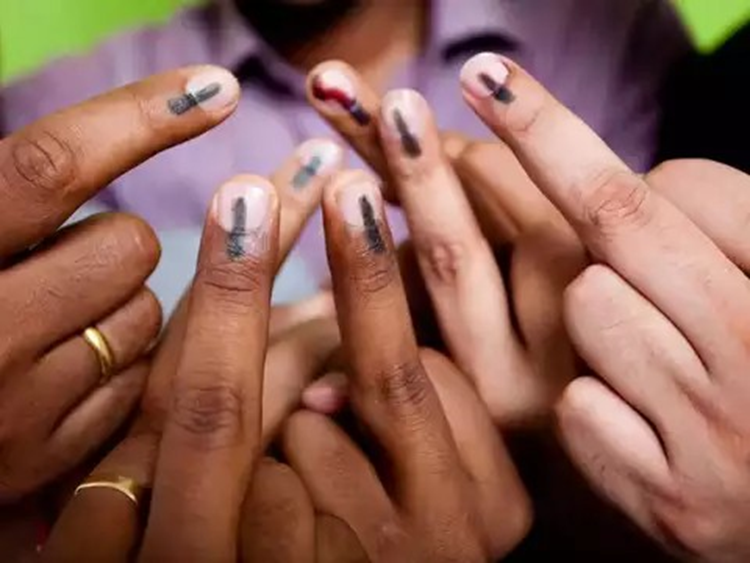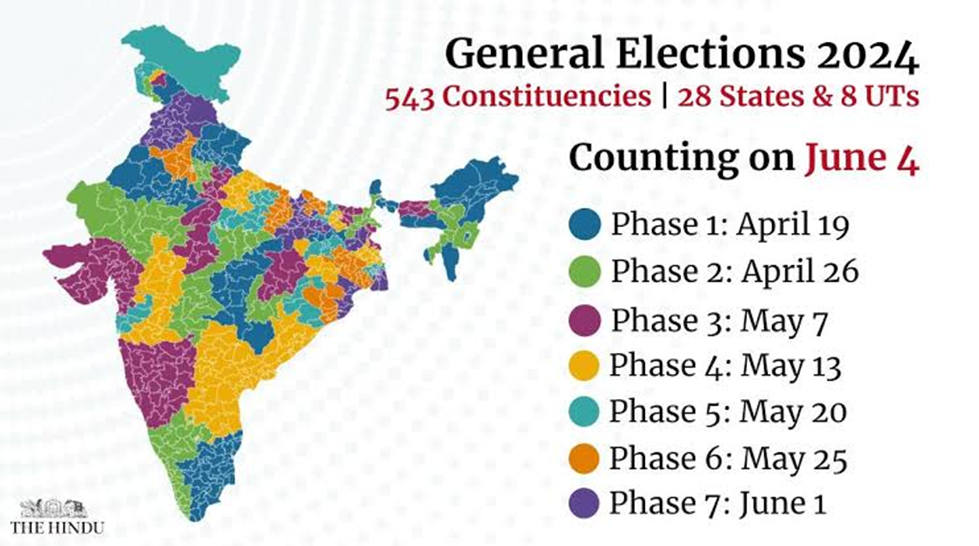Loksabha Election 2024- Interesting Facts
“Hello, everyone! Welcome back to the Universal Group Institutions’ channel, right here from Bangalore! Today, we’re delving deep into the 18th Lok Sabha Elections of 2024. But before we jump into the fascinating details and unique stories of this election, let’s start with the foundation of it all – the Constitution of India, which lays down the fundamental aspects of how elections are conducted in our country.”
Intriguing Facts about the 18th Lok Sabha Elections 2024]
“Fact Number One is that for the first time in the history of Indian elections since independence in 1947, the indigenous Shompen tribe from the remote islands of the Nicobar will be casting their votes. This is a monumental moment recognizing the inclusivity of our electoral process.”
Moving on to Fact Number Two, In certain districts of Manipur, we observe a peculiar scenario where no voting takes place. This unusual occurrence sheds light on the complex socio-political dynamics within the state.”
“Fact Number Three involves our neighbor to the north, Nagaland, where the situation echoes that of Manipur, with certain areas historically not participating in the vote. This highlights varied electoral participation across different regions.”
“For our fourth fact, we travel to Arunachal Pradesh, specifically to the Anjaw district. What makes Anjaw stand out? It’s the district with one of the lowest voter counts in the country, and in this election, a 44-year-old woman named Sekela Tayang will be casting her vote there. She’s an inspiration, showing that every single vote counts.”
“Fact Number Five is The Technological Leap. This year, the Election Commission of India is implementing advanced technologies to ensure a smoother, more secure voting process. From electronic voting machines that provide tamper-proof results to apps that help manage the queues at polling stations, technology is making its mark on the Indian elections.”
Fact Number Six is in face of rare scenario in Surat, where a BJP’s candidate Mr Dalal is running unopposed. This is a significant event, as it’s fairly uncommon in the competitive landscape of Indian politics. It speaks volumes about the political dynamics in Surat.”
“And lastly, let’s dive into Fact Number Seven: Record Number of Young Voters. The 2024 Lok Sabha elections are set to mark a record with the highest participation of young voters aged between 18 and 23. This surge is thanks to various initiatives aimed at encouraging young Indians to take an active role in shaping the future of their country.”
1950 vs 2024
Let’s rewind to history. India’s first Lok Sabha elections were monumental, held from October 25, 1951, to February 21, 1952. Picture this: 489 seats in the Lok Sabha, spread across 401 constituencies in 25 states.”
“Nearly 2,000 candidates vied for these seats, each armed with a distinct colored ballot box, bearing their name and symbol. It was a pioneering moment in India’s democratic journey.”
“Fast forward to 2024, and the landscape has transformed. According to official ECI data, a staggering 96.8 crore voters will participate in the upcoming Lok Sabha elections.”
“Among them, 1.8 crore are first-time voters, and an astounding 19.47 crore fall between the ages of 20 and 29. The youth of India are stepping up, with more than 85 lakh women joining the electoral process as first-time voters.”
“With 10.5 lakh polling places, 1.5 crore dedicated poll workers and security personnel, and a whopping 55 lakh electronic voting machines, the stage is set for a historic event.”
The action unfolds over seven intense phases, starting from April 19 and climaxing on June 1, as per the Election Commission’s decree.”
“Hold onto your seats because on the opening day, a whopping 102 seats were up for grabs! It was the grand kickoff to this democratic extravaganza.”
“But the excitement doesn’t stop there! Mark your calendars for April 26, May 7, May 13, May 20, May 25, and June 1, because those are the days when democracy goes into overdrive!”
“This nationwide spectacle kicks off in 21 states and Union territories, with Bihar, Uttar Pradesh, and West Bengal leading the charge in all seven phases.”
“And here’s the kicker – 22 states, including most northeastern states except Manipur and Assam, wrap up their polling in just one phase. Manipur, amidst conflict, spreads its voting across the first two phases.”
“Tamil Nadu, known for its unique flair, wraps up its voting marathon on April 19, deciding all 39 seats in one go!”
“As the phases progress, the drama intensifies! Phase two with 89 seats, phase three with 94, phase four with 96, phase five with 49, and the final two phases with 57 seats each.”
“And hold onto your hats because Punjab, along with other regions like Himachal Pradesh, Jharkhand, Odisha, and Chandigarh, are saving the best for last, conducting their polling showdown on the final day!”
[Understanding the Election Commission of India]
The ECI was established in accordance with Article 324 of the Indian Constitution. This article empowers the Commission to supervise, direct, and control the entire process of conducting elections to the Parliament and to the legislature of every state, as well as the elections to the offices of the President and Vice President of India.
[The Composition of the ECI]
Initially, the ECI had only one Election Commissioner, but since October 1, 1993, it has been expanded to include multiple commissioners. The Chief Election Commissioner (CEC) and other Election Commissioners have an equal say in the decision-making process of the Commission. They are appointed by the President of India and are tasked with ensuring free and fair elections across the country.
[Current Leadership]
The present Chief Election Commissioner, as of the latest updates, is Rajiv Kumar. His role is crucial, especially as the country navigates through both traditional challenges and new-age digital voting technologies.
[Roles and Responsibilities]
The primary duties of the ECI include:
1. Preparing the electoral roll and ensuring all eligible voters are registered.
2. Monitoring the political parties and their finances to maintain transparency.
3. Administering the conduct of elections and ensuring they are free from corruption and malpractice.
[Key Constitutional Articles]
Besides Article 324, several other constitutional provisions are essential for the ECI’s functioning:
Article 325 prohibits discrimination in voter registration on the grounds of religion, race, caste, or sex.
Article 326 lays down the principle of adult suffrage, meaning that the right to vote should not be denied on grounds other than non-residence, unsoundness of mind, crime, or illegal practice.
In recent years, the ECI has faced numerous challenges, including managing the logistical mammoth task of conducting elections in the world’s largest democracy, dealing with issues of electoral fraud, and the advent of electronic voting. Reforms like the introduction of Electronic Voting Machines (EVMs) and Voter Verifiable Paper Audit Trails (VVPATs) have been significant milestones.
The Election Commission of India, underpinned by a robust constitutional framework, continues to strive towards a transparent, inclusive, and fair electoral process. As we move forward, the role of the ECI and its adaptive strategies will be crucial in shaping the democratic fabric of India.
“Other key articles include **Article 326**, which guarantees the right to vote to every citizen above the age of 18, based on universal adult suffrage. This is crucial because it underscores the democratic ethos that every adult citizen has an equal say in the shaping of the government.”
As we gear up for the 18th Lok Sabha election, let’s celebrate the spirit of democracy and the evolution of India’s electoral process. Stay tuned to our channel and our website www.universalinstitutions.com for more updates on this monumental event. Remember, every vote counts. Thanks for watching!”“





